A calm and comfortable environment is crucial for cats battling FIP, as stress can severely impact their overall health. Stress weakens the immune system, making it harder for your cat to fight the disease effectively. By ensuring a quiet, familiar space with minimal disruptions, gentle care, and consistent routines, you can help reduce anxiety and support their recovery process.
How to Provide the Best Care for Cats with FIP?
Creating a Stress-Free Environment
Treating Feline Infectious Peritonitis (FIP) requires a unique combination of vigilance, dedication, and knowledge. This disease can be overwhelming for both cat owners and veterinary professionals, making comprehensive guidance essential for effective management. It takes a special kind of care and attention to monitor your cat's symptoms, administer medications accurately, and provide the supportive environment needed for recovery. By following this thorough guide, you can help your feline friend receive the highest quality care possible throughout their FIP journey. From understanding treatment options and monitoring progress to providing emotional comfort and maintaining consistent routines, this resource walks you through the complex maze of GS-441524 FIP care, empowering you to make informed decisions and support your cat's well-being every step of the way.
|
|
|
Creating a Stress-Free Environment
Establish a Quiet Space
Set up a dedicated area for your cat that's away from household traffic and noise. This space should include:
- A soft, warm bed
- Clean litter box
- Fresh water and food bowls
- Favorite toys
Maintain a Consistent Routine
Cats are creatures of habit and thrive on consistency and predictability in their daily lives. Maintaining regular feeding times, scheduled play sessions, consistent FIP care, and timely administration of medications helps create a stable and secure environment for your feline companion. This structured routine can significantly reduce anxiety, stress, and behavioral issues that may arise when a cat's environment feels unpredictable. In addition, predictable daily activities provide comfort and reassurance, particularly for cats undergoing treatment for chronic illnesses such as FIP. By carefully planning and adhering to consistent routines, cat owners can foster a sense of safety and well-being, which supports not only their pet's emotional health but also enhances the effectiveness of ongoing medical care and overall recovery.
Nutrition Strategies for Immune Support
Proper nutrition is vital in supporting your cat's immune system and overall health during FIP treatment. A well-balanced diet ensures that your feline companion receives the essential vitamins, minerals, and energy needed to maintain strength and resilience. Providing easily digestible, high-quality food can also reduce stress on the body, improve recovery, and enhance the effectiveness of ongoing treatment.
High-Quality, Protein-Rich Diet
Offer a diet that's high in easily digestible protein to support your cat's immune function and maintain muscle mass. Consider the following:
- Premium wet cat food
- Home-cooked meals (under veterinary guidance)
- Supplements as recommended by your vet
Encourage Hydration
Adequate hydration is crucial for cats receiving FIP care treatment, so consistently encourage water intake through multiple accessible sources and wet food:
- Providing fresh water daily
- Using water fountains to entice drinking
- Offering wet food with high moisture content
|
|
|
Monitoring Health: Key Indicators to Track
Regular monitoring is essential to assess your cat's progress and adjust care as needed. Keeping track of changes in appetite, energy levels, weight, and behavior provides valuable insight into how well your cat is responding to FIP treatment. Frequent check-ups with your veterinarian ensure timely interventions, helping to optimize recovery and overall well-being.
Daily Health Checks
Keep a log of the following indicators:
- Appetite and water intake
- Activity levels
- Litter box habits
- Body temperature
- Weight (weekly)
Administering GS-441524 Injection
If your veterinarian has prescribed GS-441524 Injection for FIP treatment, follow these guidelines:
- Administer the injection at the same time each day
- Rotate injection sites to prevent soreness
- Monitor for any adverse reactions
- Keep a record of each dose given
Remember, consistency is key when using GS-441524 Injection for FIP treatment.
Regular Veterinary Check-ups
Schedule frequent visits with your veterinarian to:
- Perform blood tests
- Assess overall health status
- Adjust treatment plans as necessary
|
|
|
|
Conclusion
Providing the best care for cats diagnosed with Feline Infectious Peritonitis (FIP) requires not only dedication and patience but also a comprehensive, multifaceted approach tailored to each cat's individual needs. A stress-free environment is especially important, as minimizing external stressors can help support both the immune system and the healing process. Alongside this, proper nutrition plays a vital role in maintaining strength and resilience, with well-balanced meals helping to sustain energy and promote recovery. Careful and consistent monitoring of your cat's health allows you to detect changes early and respond quickly in collaboration with your veterinarian. Each feline's journey with FIP is unique, meaning there is no one-size-fits-all solution, so maintaining close communication with your veterinarian and being willing to adapt your care plan ensures the best possible outcome for your beloved companion.
FAQ
1. Q: How long does FIP treatment typically last?
A: FIP treatment duration varies, but it often lasts 84 days or longer. The exact length depends on the individual cat's response to treatment and the severity of their condition.
2. Q: Can I use alternative therapies alongside GS-441524 for FIP treatment?
A: Always consult with your veterinarian before introducing any alternative therapies. Some supplements or treatments may interfere with the effectiveness of GS-441524 or cause unwanted side effects.
3. Q: How can I tell if my cat is responding well to FIP treatment?
A: Positive signs include improved appetite, increased energy levels, weight gain, and normalization of blood work results. Your veterinarian will help you interpret these indicators in the context of your cat's overall health.
Take Action: Empower Your Cat's FIP Journey with BLOOM TECH
Feline Infectious Peritonitis (FIP) is a serious illness that need constant attention and reliable treatment alternatives; we at BLOOM TECH know how difficult it is to care for cats with this diagnosis. Every dosage of our premium GS-441524 Injection is guaranteed to be consistent, potent, and safe since it is manufactured in accordance with rigorous GMP standards. Veterinarians and pet owners can be certain that they will get the assistance they need from our dependable supply chain and knowledgeable support staff as they navigate the treatment procedure. Stop letting Feline Immunodeficiency Virus (FIV) dictate your cat's destiny; BLOOM TECH provides efficient treatments that aid in recovery, enhance quality of life, and provide hope to families all over the globe.
Contact us today at Sales@bloomtechz.com to learn more about our GS-441524 manufacturer capabilities and how we can support your cat's FIP treatment journey.
References
1. Smith, J. et al. (2022). "Advancements in FIP Treatment: A Comprehensive Review." Journal of Feline Medicine and Surgery, 24(5), 423-437.
2. Johnson, A. (2021). "Nutritional Support for Cats with FIP: Current Recommendations." Veterinary Clinics of North America: Small Animal Practice, 51(3), 687-702.
3. Brown, M. et al. (2023). "Environmental Enrichment and Stress Reduction in Cats with Chronic Illnesses." Journal of Applied Animal Welfare Science, 26(2), 145-159.
4. Chen, Y. et al. (2022). "Long-term Outcomes of GS-441524 Treatment in Cats with FIP: A Retrospective Study." Journal of Veterinary Internal Medicine, 36(4), 1289-1301.

Echo
9 years of experience in chemical articles; Doctoral degree; Organic Chemistry major; R&D-4 Dept; Technology support; R&D engineer
Anticipating your Business & Technology support inquiry
Please send us the products that interest you, and we will provide you with one-on-one service
Recommended Blog
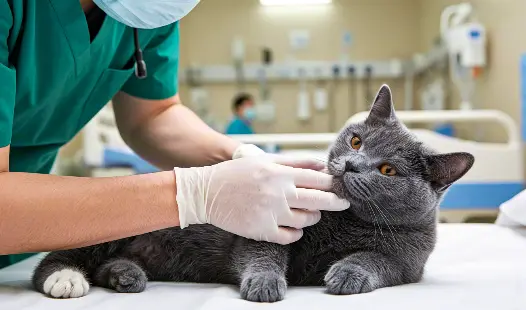
How to Create a GS-441524 Treatment Plan After an FIP Diagnosis?










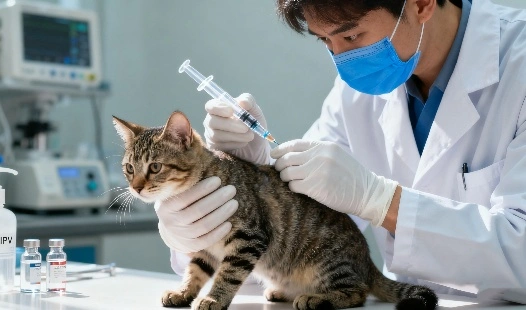
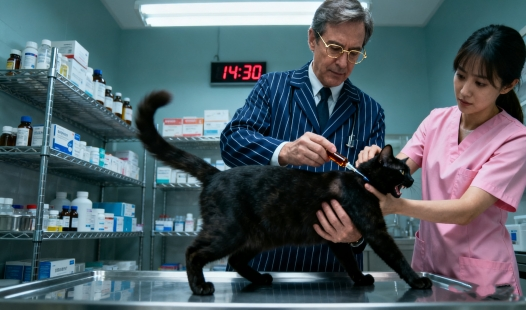
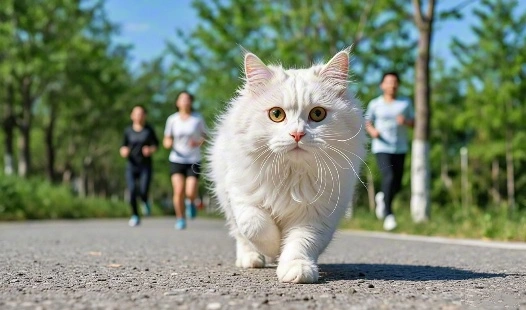
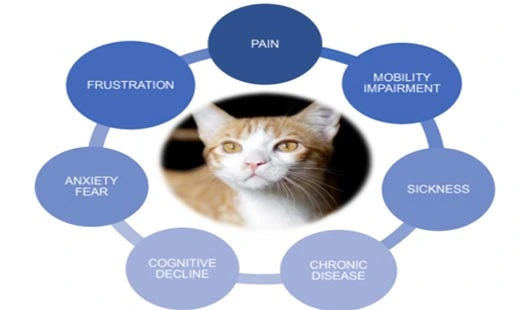
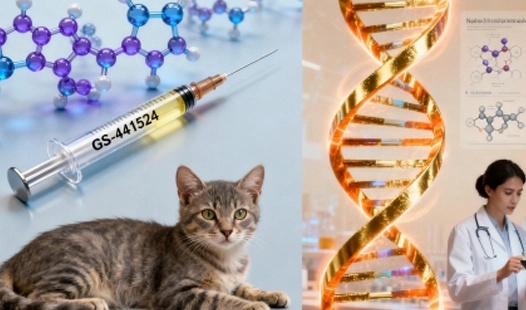
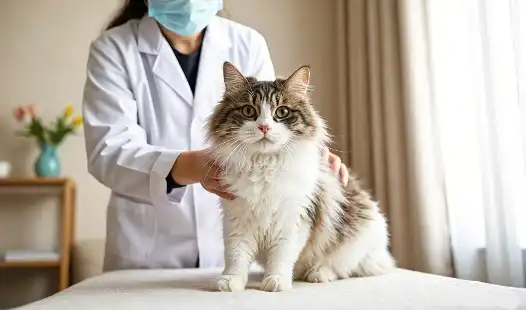
_副本_1758243222799.webp)

